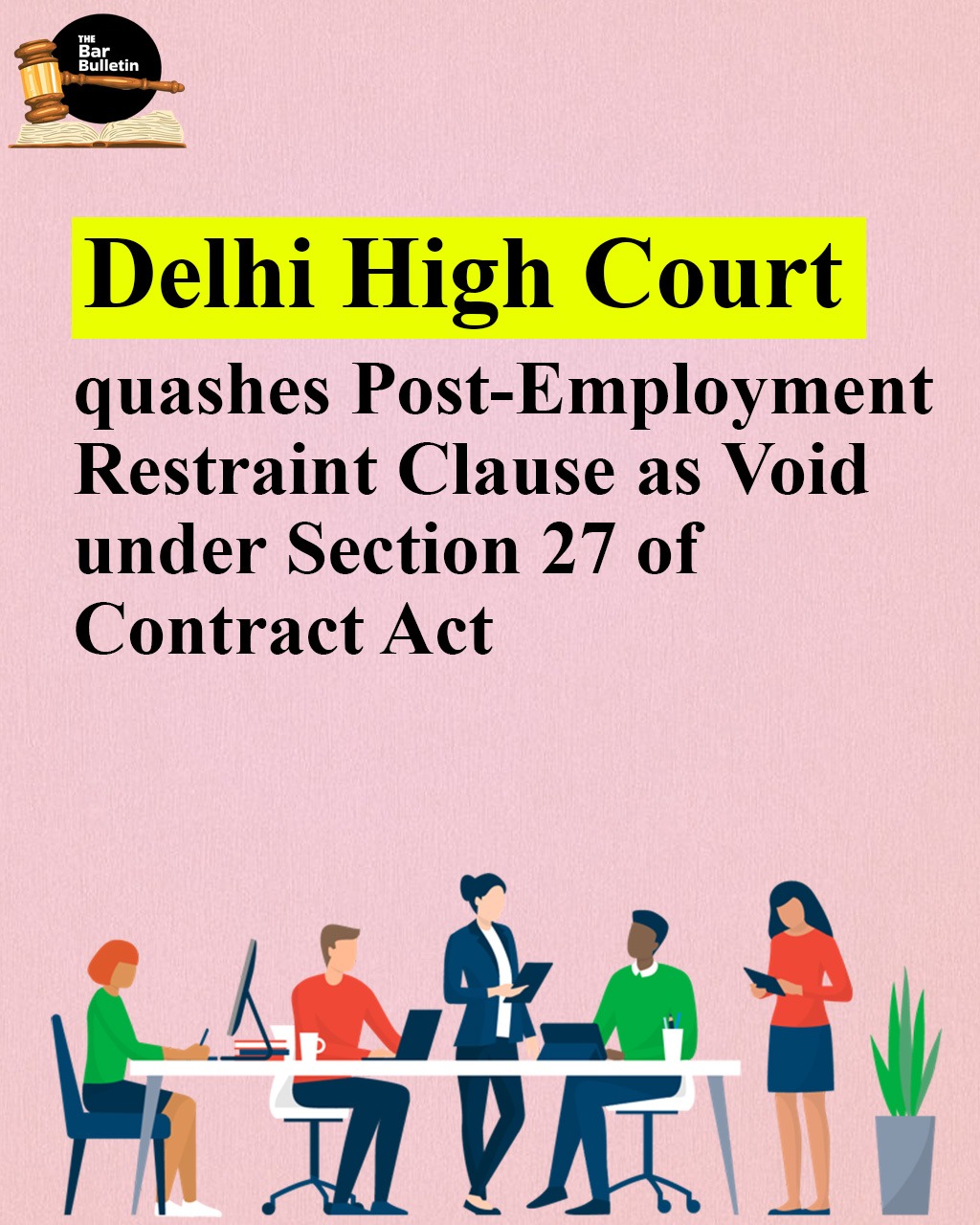The Delhi High Court while dealing the issue relating to validity of the non-solicitation and non-compete clause in the Employment Agreement under Section 27 of the ICA, set aside an interim injunction that restrained him from working with Digital India Corporation (DIC) and National E-Governance Division (NeGD). The injunction was earlier granted by the Trial Court in favour of Daffodil Software Pvt. Ltd., his former employer, based on a non-compete clause in his employment agreement.
The single judge bench comprising of Justice Tejas Karia held that the non-compete clause, which sought to restrict Tyagi from working with any “Business Associate” (including DIC and NeGD) for three years post-termination, was void under Section 27 of the Indian Contract Act, 1872. The Court reiterated that Indian law does not recognize restraints on trade, even if partial, after termination of employment, unless it falls within the statutory exception related to sale of goodwill.
Under Indian Law, all contracts falling within the terms of Section 27 of the ICA are void unless they fall within the specific exception under Section 27 of the ICA. Accordingly, the Appellant has submitted that clause 2.16 read with a definition of ‘Business Associates’ in the Employment Agreement between the Appellant and the Respondent is very broad and imposes a blanket ban on the Appellant to not work for any present or potential customer of the Respondent. Hence, the restriction sought to be enforced by the Respondent is clearly in restraint of trade and is void under Section 27 of the ICA.
The Court found that the clause imposed a blanket restriction on post-employment engagement with current or potential clients of the employer, amounting to a restraint of trade. Also, the intellectual property and source code allegedly at risk belonged to DIC, not the employer, thus nullifying the claim of potential disclosure.
The Court also noted that an employee cannot be confronted with the situation where he has to either work for the previous employer or remain idle. An employer- employee contracts, the restrictive or negative covenant are viewed strictly as the employer has an advantage over the employee and it is quite often the case that the employee has to sign standard form contract or not be employed at all. Citing several precedents, including Superintendence Co. v. Krishan Murgai, (1981) 2 SCC 246 and Percept D’Mark v. Zaheer Khan, (2006) 4 SCC 227, the Court underscored that reasonableness or partiality of restraint is irrelevant if the clause otherwise falls foul of Section 27.
Therefore, the Court held that employment contract that imposes a restriction on right of the employee to get employed post-termination of the contract of employment shall be void being contrary to Section 27 of the ICA.
Advocates who appeared in this case
For the Appellant : Mr. Asav Rajan, Mr. Ajay Sharma, Mr. Mayank Biyani, Mr. Akash Saxena, Mr. Kashish Sharma & Mr. Devang Shrodriya, Advocates.
For the Respondent : Mr. Divyakant Lahoti, Ms. Vindhya Mehra, Ms. Tanisha Verma, Mr. Raghav Saluja & Mr. Kartik Lahoti, Advocates.
Read Order
![]()



